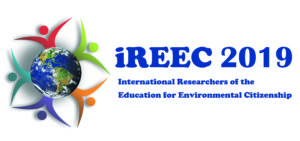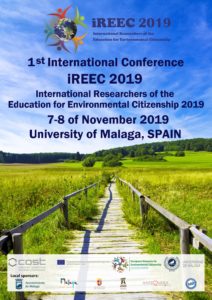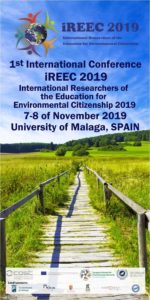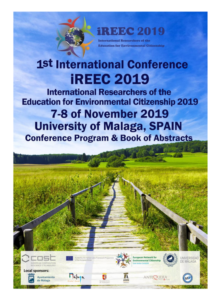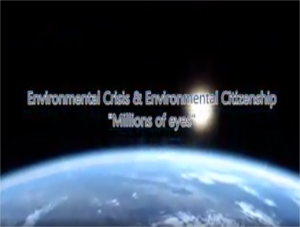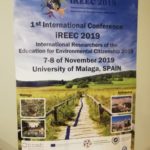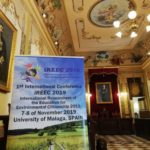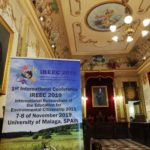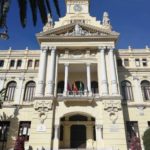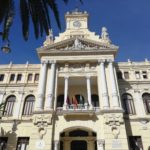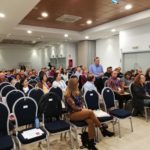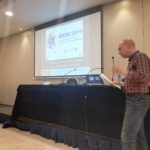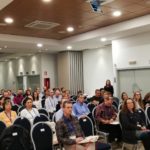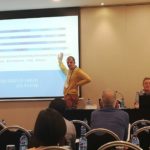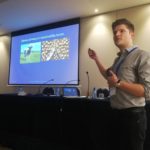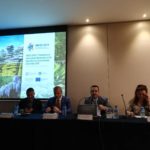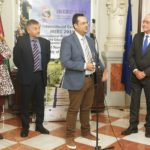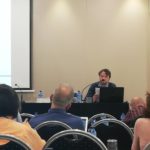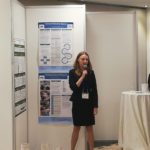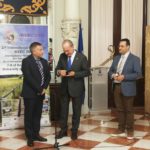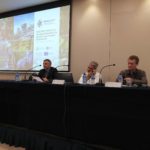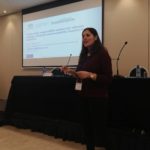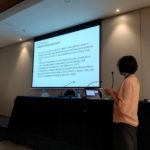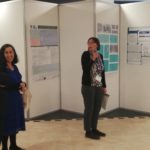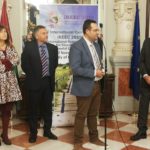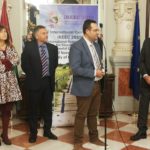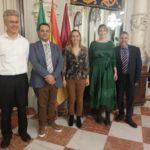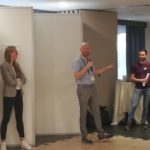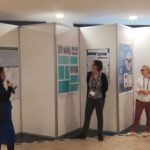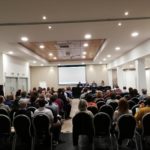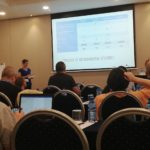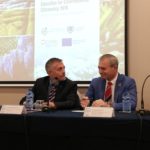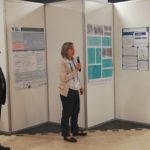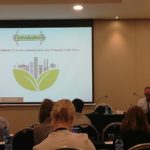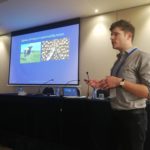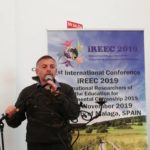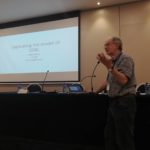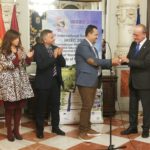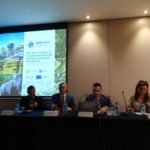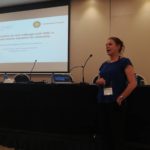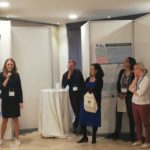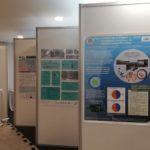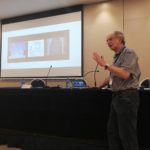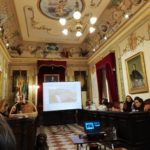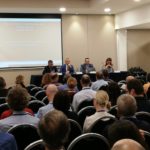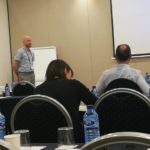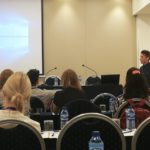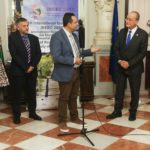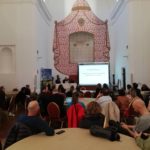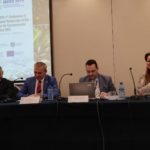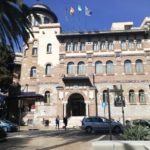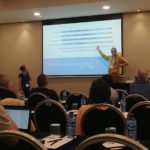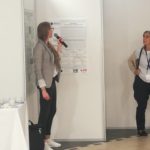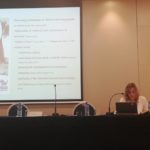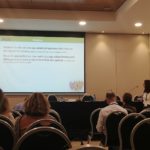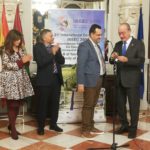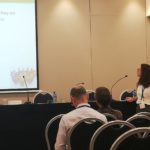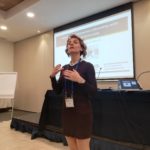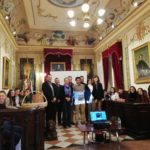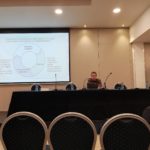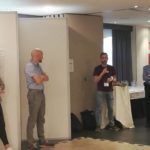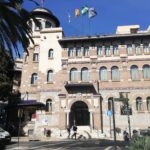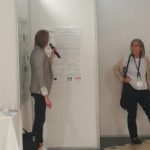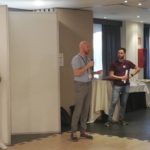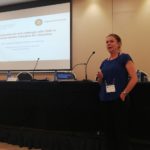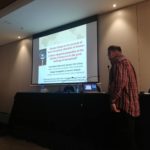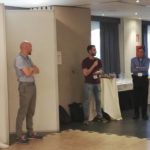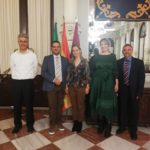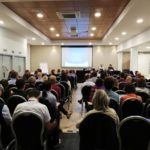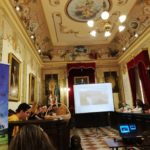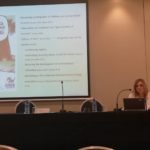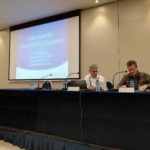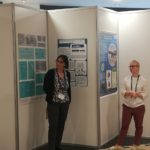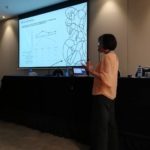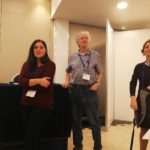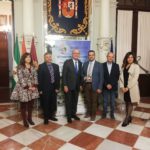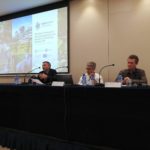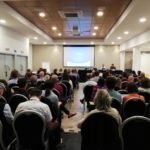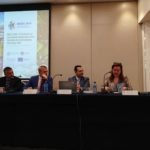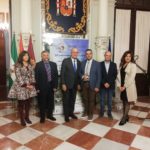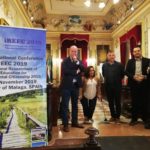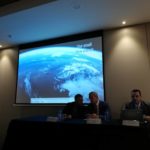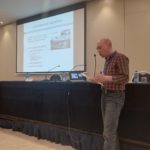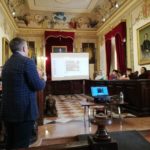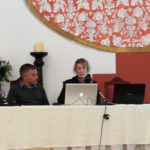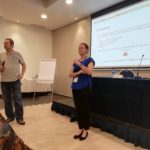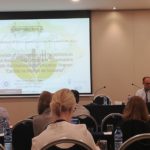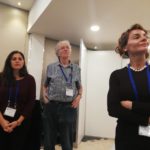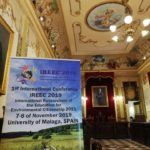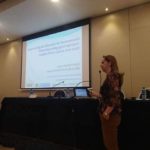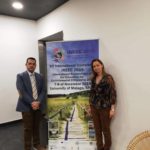iREEC 2019: 1st International Conference of
International Researchers of the
Education for Environmental Citizenship 2019
International Conference | Location | Dates | Registration to the conference | Formatted abstract submission | Instructions for presentations | Conference Venue | Airports | Hotels | Public Transportation | About Malaga | Local Sponsors | Poster | Conference Program and Book of Abstracts | Presentations | Photo Gallery | Press Release |
1. International Conference: Call for Proposals
Environmental Citizenship is a key factor in EU’s growth strategy (Europe 2020) and EU’s vision for Sustainable Development, Green and Cycle economy and Low-carbon society (EU-roadmap 2050). Environmental Citizenship has been an influential concept in many different arenas such as economy, policy, philosophy, organizations’ management, leadership and marketing and could be better exploited and established furthermore in education. Environmental Citizenship is recognized as an important aspect in addressing global environmental problems such as climate change (Stern et al., 2011; Ockwell et al., 2009), whilst providing support to pro-environmental organizations and individuals, contributing also to public pressure for political action (signing petitions, writing to politicians and newspapers).
Education has a lot to contribute in adopting and promoting Environmental Citizenship. The under-explored (until now) potential for pro-environmental behavior change through Environmental Citizenship should be more emphasized (Dobson, 2010) and can contribute greatly to a more sustainable world. Education for Environmental Citizenship (EEC) has a lot to contribute to this direction. In other words, Environmental Citizenship is about empowering people to develop their knowledge, competencies and dispositions necessary for responsible environmental engagement and civic participation. The European Network for Environmental Citizenship (ENEC), which is active in 37 countries, was established to promote theoretical and applied understanding of the Education for Environmental Citizenship and provides the following definition of EEC:
“Education for Environmental Citizenship” (EEC) is defined as the type of education which cultivates a coherent and adequate body of knowledge as well as the necessary skills, values, attitudes and competences that an environmental citizen should be equipped with in order to be able to act and participate in society as an agent of change in the private and public sphere, on a local, national and global scale, through individual and collective actions, in the direction of solving contemporary environmental problems, preventing the creation of new environmental problems, in achieving sustainability as well as developing a healthy relationship with nature. “Education for Environmental Citizenship” (EEC) is important to empower citizens to exercise their environmental rights and duties, as well as to identify the underlying structural causes of environmental degradation and environmental problems, develop the willingness and the competences for critical and active engagement and civic participation to address those structural causes, acting individually and collectively within democratic means and taking into account the inter- and intra-generational justice (ENEC 2018)[1].
Education for Environmental Citizenship can be examined in different educational levels such as primary and secondary education and in different educational settings such as formal and non-formal education. In the iREEC 2019 international conference, the different ways and educational approaches with which Environmental Citizenship can be promoted will be emphasized.
The iREEC 2019 is an international conference in which original research papers, theoretical papers and reports from throughout the world dealing with the Education for Environmental Citizenship in all levels (pre-primary, primary, lower-secondary, upper-secondary, tertiary, higher education) and all settings-formalities (formal, non-formal, informal education) can be presented. The purpose of the iREEC 2019 is to contribute advance understanding of environmental and sustainability education through a focus on research works examining and promoting environmental citizenship through education. Multidisciplinary research and approaches combining environmental education, sustainability education, science education and citizenship education are also accepted.
iREEC 2019 International Conference Aims to:
- Present research on scientific and educational activities that exemplify developments toward achieving environmental citizenship.
- Emphasize educational research which focus to empower citizens to exercise their environmental rights and duties, to identify the underlying structural causes of environmental degradation, as well as to develop the competences for critical and active engagement and civic participation.
- Conduct scientific dialogue on educational challenges deriving from the theoretical foundations of environmental citizenship (as a field that integrates knowledge, skills, values, attitudes and competences) and demonstrate how these are addressed in formal and non-formal education.
- Promote and support best practices that cultivate the type of values, attitudes, skills and competences that an environmental citizen should be equipped with in order to act and participate in society as an agent of change.
Submit a proposal:
You are invited to submit a proposal on one of the following sessions, and in one of the following types of presentations:
iREEC 2019 Sessions:
- Social, economic and political dimensions of Environmental Citizenship
- Environmental Citizenship as a psychological construct (Knowledge(s), Values, Beliefs, Attitudes, Skills and Competencies and Environmental Citizenship)
- Environmental Citizenship in the context of Environmental Education & Education for Sustainability (Responsible Environmental Behaviour, Youth Activism, Education for Sustainability and Environmental Citizenship)
- Environmental Citizenship in different sectors (heritage, tourism, transport, cities, etc.)
- Education for Environmental Citizenship in Formal Education
- Education for Environmental Citizenship in Non-Formal Education
- Education for Environmental Citizenship in In-Formal Education.
iREEC 2019 Presentation types:
- Oral presentation (8 min presentation and 2 min discussion)
- Poster in Interactive Poster Session
- Symposium with at least 3 papers. In the case of a symposium, a minimum of three different countries should be represented.
iREEC 2019 Proposals’ Information:
Each proposal should include the following in ONE SINGLE WORD DOCUMENT:
- Author(s) information (Full Names and Affiliations)
- Proposal Title
- Keywords (up to six)
- Preferred session (select one from the iREEC 2019 Sessions)
- Type of presentation (Oral presentation, Poster in Interactive Poster Session, Symposium).
- A paper including: title, authors, session, theoretical background or rationale, key objectives, research design and methodology, findings, conclusions and reference list (400 words maximum, excluding tables, figures, references).
- Naming of the proposal file: 1st AuthorSurname_1st keyword.doc. Please ensure that the files have different names, in the case of submission of more than one proposal files by the same 1st Author.
Submission and Registration:
Presenters of all accepted presentation are required to register for the international conference.
International Conference Proceedings:
The international conference proceedings of the abstracts will be available in digital and printed versions.
Peer reviewed publication:
The ENEC Steering Committee will consider publishing a special issue of a peer reviewed journal based on selected papers presented at iREEC 2019. The selected papers will be invited to prepare and submit an expanded version (instructions to be forthcoming).
Deadlines for iREEC 2019 are:
- Opening of submission: 15th of January 2019
- Final submission deadline: 25th of April 2019
- Notification of review results: 30th of June 2019
- Beginning of registration: 30th of June 2019
- End of early-bird registration: 31st of July 2019
- End of registration: 5th of September 2019
- International Conference Dates: 7-8 November 2019
Submission of Proposals:
Proposals should be electronically submitted in the two (2) e-mails below:
info@enec-cost.eu and to enec.cost.eu@gmail.com
Proposals received after the 25th of April 2019 will not be considered.
Evaluation of Proposals:
Proposals will be reviewed under the following criteria:
- Research: Is the proposal concerned with research in Education for Environmental Citizenship?
- Subject / problem: What is the research problem or question? What is the rationale for the study? What is the theoretical framework?
- Design and methodology: What is the design of the study? Are the research methods clearly described and appropriate?
- Data analysis and findings: Are the data clearly presented? Is there consistency between data and findings? (except for theoretical papers)
- General interest: Is the contribution of interest to International researchers in the field?
The standards, in terms of quality, will be the same for oral and poster presentations. The following criteria will be applied:
For oral presentations (including a presentation at a symposium):
- Work to be presented should be reaching completion or be complete and well thought through.
- Data should be available.
- Content should be of high interest and/or relevance.
For poster presentations:
- Work may be under development.
- Findings may be tentative or not yet available.
- Content may be of less interest and/or relevance.
Important Rules:
Some important rules to keep in mind.
The following are eligible to attend iREEC 2019:
- No participant may submit more than two first authored paper.
- No participant may present more than twice during the international conference.
- The first authors/contact persons of accepted proposals will receive the iREEC 2019 international conference guidelines for papers and the registration form and (s)he will share the information with all the authors of the specific proposal.
- The conference language will be English.
- At least one author of each proposal should participate and register to the iREEC 2019
International Scientific Committee of iREEC 2019:
The International Scientific Committee of the iREEC 2019, is composed of the following members:
- Dr Andreas Ch. HADJICHAMBIS, Chair of ENEC
- Prof Pedro REIS, Vice–Chair of ENEC
- Dr Marie-Christine KNIPPELS, Dissemination Board Coordinator of ENEC
- Dr Audronė TELESIENE, Leader of the ICC Committee of ENEC
- Prof Daphne GOLDMAN ,Vice-Leader of the ICC Committee of ENEC
- Dr Demetra PARASKEVA-HADJICHAMBI, Grant Holder Manager of ENEC
- Dr José Jesús DELGADO PEÑA, Chair of the Local Organizer Committee of iREEC 2019.
Local Organizing Committee of iREEC 2019:
The Local Organizing Committee of the iREEC 2019, is composed of the following members:
- Dr José Jesús DELGADO PEÑA, Chair of the Local Organizer Committee of iREEC 2019
- Dr Carlota Angela ESCUDERO GALLEGOS
- Dr Remedios LARRUBIA VARGAS
- Dr Juan José NATERA RIVAS
- PhD Student Abraham NUEVO LÓPEZ
- Dr María Jesús PERLES ROSELLÓ
- Dr José Damián RUIZ SINOGA
- Dr José María SENCIALES GONZÁLEZ
2. Location: Málaga (Hotel Eurostars) and Antequera ( Hotel La Magdalena)
Opening of submission: 15th of January 2019
Final submission deadline: 25th of April 2019
Notification of review results: 30th of June 2019
Beginning of registration: 30th of June 2019
End of early-bird registration: 31st of July 2019
End of registration: 5th of September 2019
International Conference Dates: 7-8 of November 2019
4. Registration to the international conference:
Registration to the conference is open. Please, register in the conference completing the Registration Form:https://docs.google.com/forms/
5. Formatted abstract submission:
Formatted abstract submission. All abstracts should be duly formatted (based on the example) and submitted to the International Scientific Committee (info@enec-cost.eu AND TO enec.cost.eu@gmail.com) by the 5th of September 2019.
Example of Formatted abstract (pdf)
Example of Formatted abstract with guidelines
Example of Formatted abstract with guidelines (pdf)
Please send both, the word and the pdf, files of the formatted abstract.
6. Instructions for presentations:
Interactive Poster Session:
The conference poster boards accept up to 120 (high) and 90 (wide) sizes, so a portrait layout would be preferable. A1 and A0 posters are acceptable. They are pin boards (pins will be provided).
Before the traditional walkaround poster presentation you will be asked to present your poster in 2 minutes(maximum) for the audience as a whole. There is no opportunity to present the poster with the aid of Power-point slides. Only 2 minute oral presentation. After the authors’ brief introduction, an in-depth discussion between them and the audience follows in the area of the poster displays. Poster session is scheduled for 60 minutes.
Oral presentations:
The oral presentations should be maximum 15 minutes long. In addition there will be time for 5 minutes of questions and/or discussions after each presentation. Computers and projectors are available in all rooms. The easiest way is to bring your presentation on a memory stick and upload your presentation before the session starts. There should be around 5 minutes at the end of the four (or five) presentations for general questions and discussion. The Chairperson of each Oral Presentation Session will be given three coloured cards with 5 minutes (white), 2 minutes (yellow) and STOP (red) written on them so that the Chairperson can give the presenters a clear indication of the time left.
Symposium Session:
Each presenter has 20 minutes and the Chairperson as the discussant have 5 minutes. This will leave 5 minutes for discussion after each presentation and 5 minutes for open discussion at the end. It is Chairperson’s responsibility to facilitate time management. Chairperson will be given three coloured cards with 5 minutes (white), 2 minutes (yellow) and STOP (red) written on them so that Chairperson can give the presenters a clear indication of the time left.
The Conference Venue of the iREEC2019 will be the Eurostars Hotel, Malaga Spain (https://www.eurostarshotels.co.uk/eurostars-malaga.html). The Eurostars Malaga hotel reservation form should be submitted directly to the hotel (if you are interested to stay at the same hotel) by the 29th of August 2019. For the MC Members and Substitutes of ENEC we recommend to receive first the Official Invitation of the ENEC event and after proceed with any reservation.
The airport of Málaga is one of the biggest airports in Spain, so you can find all kind of flight companies travelling there, even most of the low-cost ones (Ryanair, Vueling, Easyjet…). There are other airports not very far away from Málaga, but you need to go from there to the city center and from the city center of the city to Málaga, what it can be very time demanding: Granada and Sevilla are the closest cities (130 Km and 200 Km, respectively), and Jérez and Almería (that are even more far away). Please, do not hesitate to contact us if you need more detailed information about the connections between these cities and Malaga.
Hotel reservation form should be submitted directly to the Eurostars Malaga hotel (if you are interested to stay at the Eurostars hotel) by the 29th of August 2019. For the MC Members and Substitutes of ENEC we recommend to receive first the Official Invitation of the ENEC event and after proceed with any reservation.
Find more information in the attached document.
Find more information in the attached document.
The Municipality of Málaga offers an App to participants in conferences with a lot of useful information about Málaga and the city interests, as well as discount vouchers for museums and activities. It is very easy to use and you can use it from now onwards, as it is already working. The instructions are:
Moreover, the Municipality of Málaga offers numerous discount vouchers to visit many city sights and museums in Málaga, as well as a lot of information that will make your visit easier by the app available in: https://malagacongresscard.com/es/login .
For login, click “Registro” and complete your personal information: Name, Family Name, e-mail and a password to use this app. Select in the Conference list “iREEC 2019” and finally click “Registrarse”. After that, you will receive an email to activate your account (check spam if not) and you are ready to use this App. You can use this App to organize your visit in Málaga before arriving.
Málaga has been incorporating the concepts of sustainability, innovation and culture into their strategic plans for many years. There is a constant exchange between visitors and the government’s tourism services, so that Málaga can do more to meet the needs of visitors.
Sustaining it all
In terms of sustainability, Málaga works in all spheres – it has installed public LED lighting, offers over 20 bike hire stations and created bike lanes that now add up to over 40km. The city has installed smart watering systems for parks and gardens in order to save water and has introduced an Air Quality Sectoral Plan to reduce air pollution, monitor pollen levels and improve noise quality. Málaga has also upgraded street cleaning equipment and has worked on better waste separation in the city centre.
In terms of nature, Málaga has much to offer. The city has almost 50 hectares of protected natural areas, 60 hectares of botanical gardens, more than 400 hectares of green space and 5 beaches. Málaga revitalised many of their natural spaces, such as its wetlands, creating ideal spots for bird watching and nature walks.
From sunny beaches to a city of culture
Málaga is quite literally a city of museums. Within just two decades, the city has gone from having 4 museums to having 37 – the city’s exhibition space thereby went from 400m2 to 35.000m2. Many old buildings and their surroundings were transformed into vibrant, cultural spaces, like Málaga’s old tobacco factory and its Tabacalera neighbourhood, or the city’s art district, Soho. Málaga has successfully transformed itself from a city known for its sunny beaches to a city of art and culture.
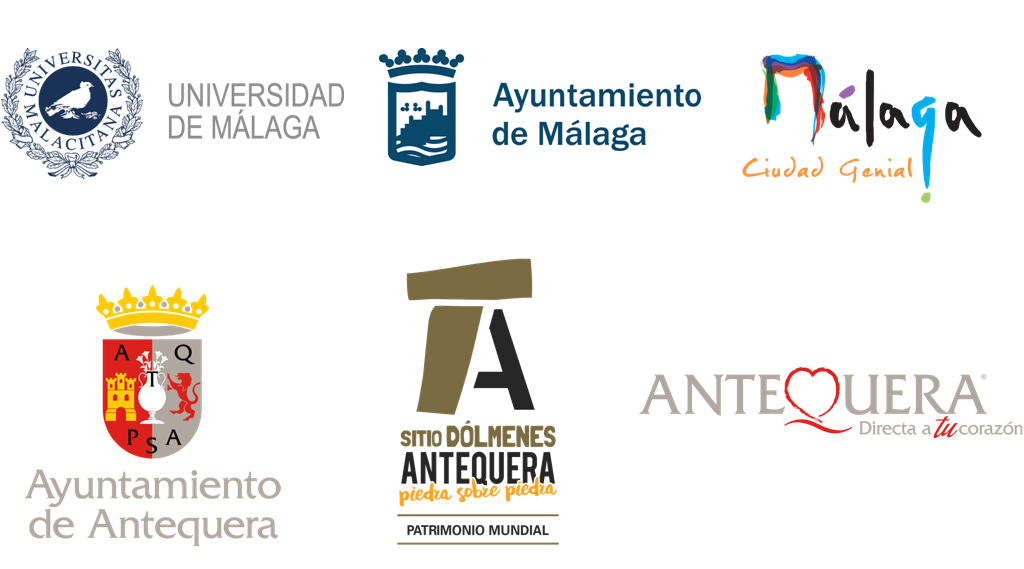
14. Conference Program and Book of Anstracts

